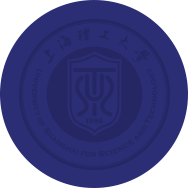On November 26th, the Guinness World Records certified that the intelligent robot “Xiao Qiu” has set the world record of “the most rally in the human-machine table tennis play” for 6, 241 consecutive times. Mr. Sheng Chun, Deputy Secretary of CPC Party Committee and Vice President of USST, attended the ceremony and delivered a speech. Ms. Wu Xiaohong, China’s first adjudicator for Guinness World Records, issued a certificate to Ji Yunfeng.
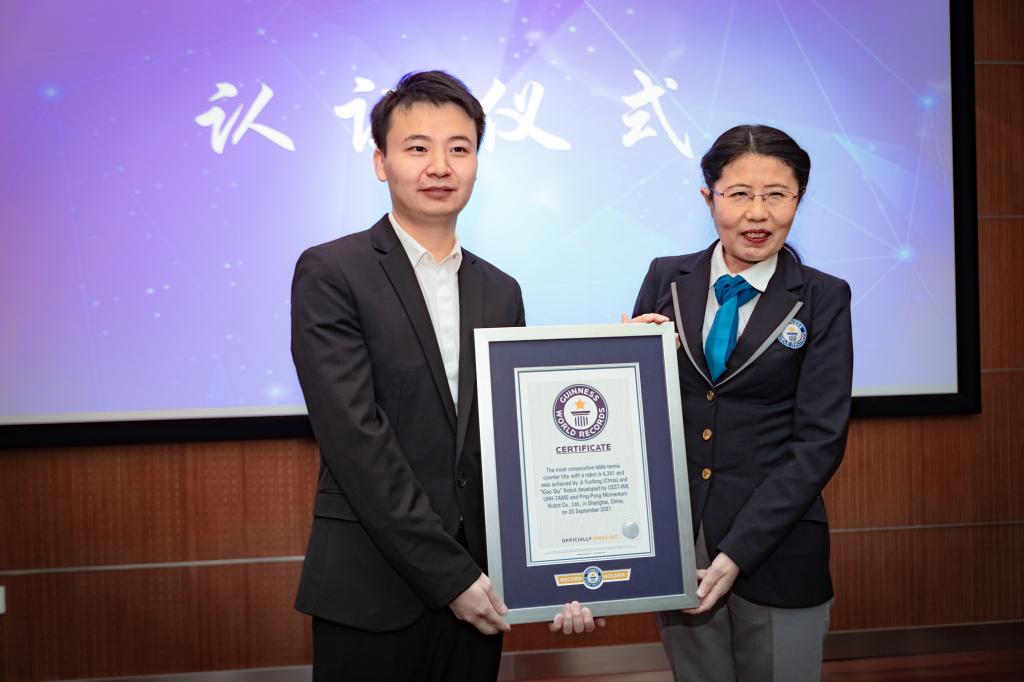
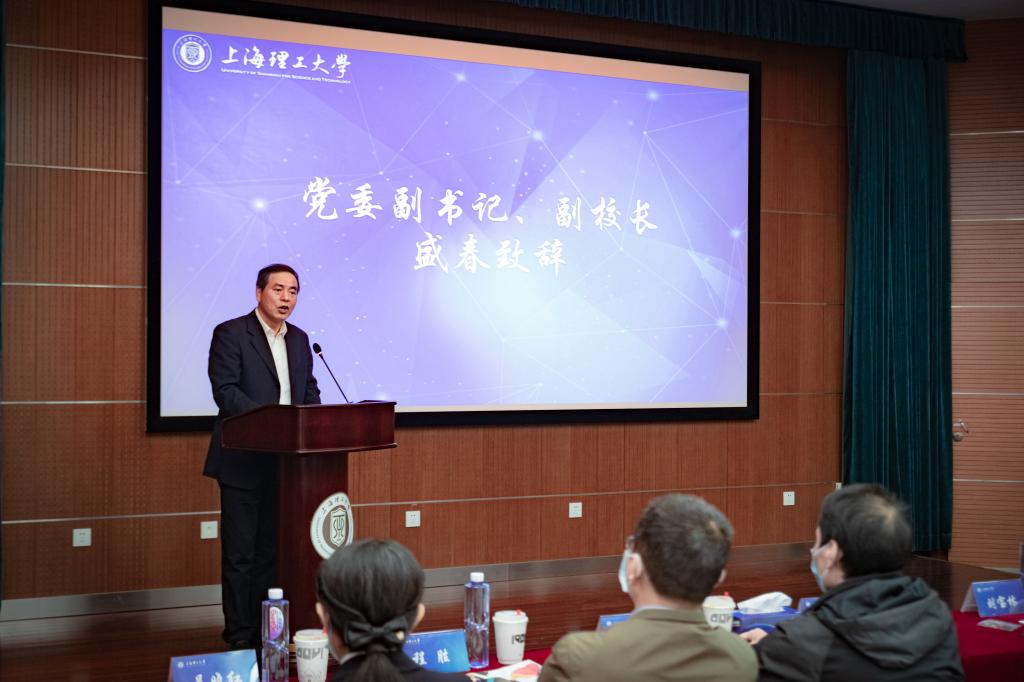
Sheng Chun, Vice President of USST, delivered a speech at the ceremony
It is well known that “Xiao Qiu” was developed by a group of students majoring in new engineering led by Ji Yunfeng under the guidance of Academician Zhang Jianwei and with the help and support of faculty and students of the Institute of Machine Intelligence. When it was first developed, “Xiao Qiu” was still like a “kid” who was just beginning to learn how to play table tennis, but the team was not satisfied with its performance and planned to endow it with better functions of “auxiliary health treatment as the main with entertainment and training as a supplement”. And it took the research group three years to create this upgraded version of “Xiao Qiu.”

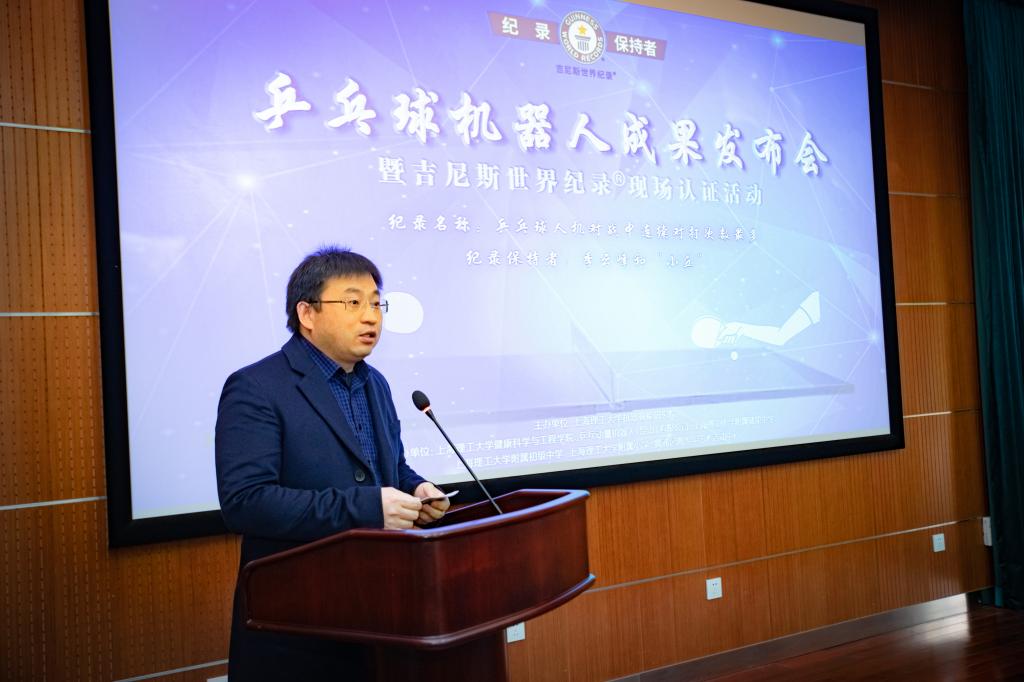
Professor Li Qingdu presided over the ceremony
Some people may say that there are “Ping Pong” robots in their communities, but the truth is that similar robots on the market can only serve at a fixed position or return the ball rigidly, making it difficult to achieve a “true” human-machine play. So how can the robot “Xiao Qiu”, just a mechanical arm at a Ping Pong table, become a Ping Pong “master” that can move freely and flexibly? All of these are attributed to the team’s innovative research in such fields as structural design, algorithm, vision, and control.

In order to make “Xiao Qiu” capable of identifying the incoming balls accurately and quickly, the team has created an innovative high-speed binocular vision system. Compared with traditional time-consuming image processing methods such as Gaussian filtering and full-image Hoff circle detection, this system can finish the detection of ROI in dynamic areas, frame difference, and machine learning within 1 ms and can calculate the position and speed of a Ping Pong ball at a speed of 250 times per second, so it has greatly improved the accurate prediction of 3D positioning tracking of the Ping Pong ball and its flight trajectory. To match the system, moreover, the research team has placed six cameras with two as a group on every side, which takes up the tasks of spatial positioning of the small ball, recognition of human movement and rotation speed of the small ball respectively, providing information sources for the system as the command center. Besides being capable of “observing the small ball coming and going in all directions,” “Xiao Qiu” should also be equipped with flexible arms to move freely and flexibly. Therefore, the team has applied such theories as Jacobi Matrix for Trajectory Planning of Joint Space, Five Polynomials to Control Speed and Acceleration to the control system.
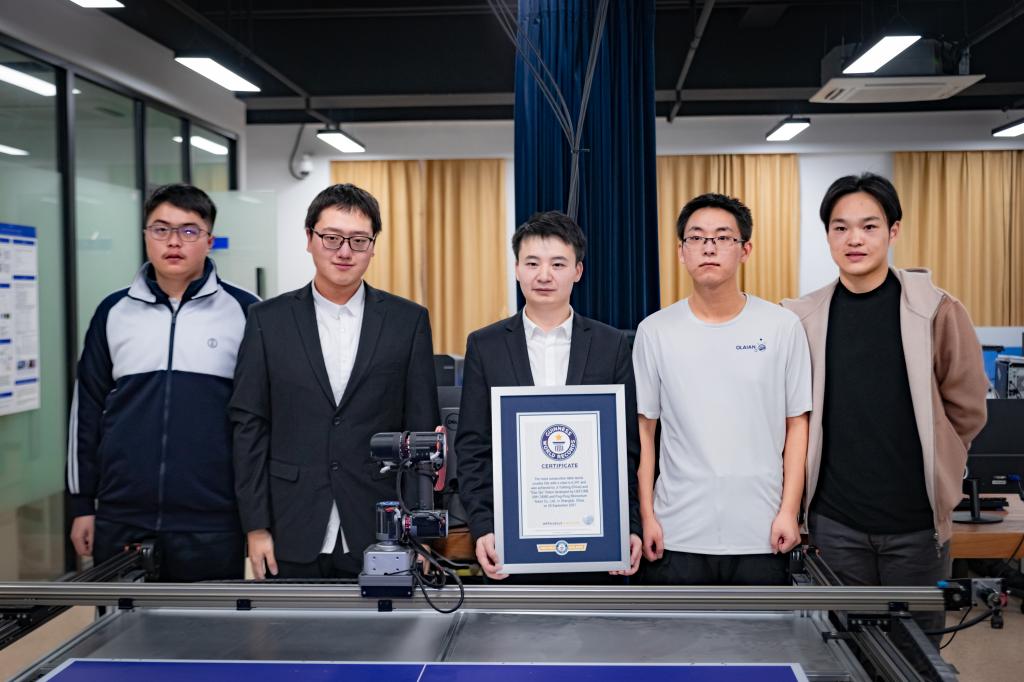
Now, Xiao Qiu is capable of completing a series of actions such as recognition, prediction, judgment and control within 0.5 seconds, and has demonstrated great stability during nearly 2 hours of play with Ji Yunfeng. “‘Xiao Qiu’ has got used to my playing habits so far, and it may take it some time to adapt to a new player, but it is a robot with independent learning ability, and can store the user’s data and gradually adapt to the user’s playing habits after a long time of play. From now on, We can endow it with such functions and other features as heart rate and blood oxygen signs collection, rehabilitation training plan development, and personalized rehabilitation training in order to provide ‘personalized exercise prescriptions’ for sub-healthy people,” declared Ji Yunfeng. Speaking of the development direction of “Xiao Qiu”, he added, “Setting Guinness World Records is the first milestone on its way to grow, and next we hope to create a robot, a combination of ‘Xiao Bei’, the Institute’s self-developed biped robot, and ‘Xiao Qiu’, which can both move smoothly on their own feet to play and practice Ping Pong with people in front of the table freely and flexibly.
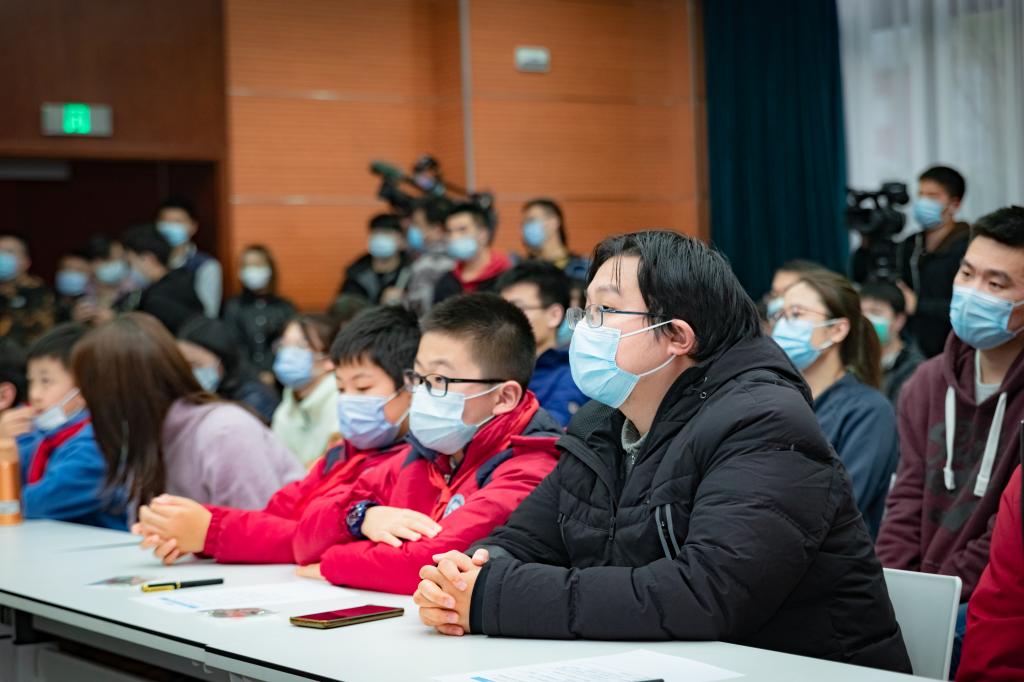

 Home
·
News & Events
·
Content
Home
·
News & Events
·
Content

